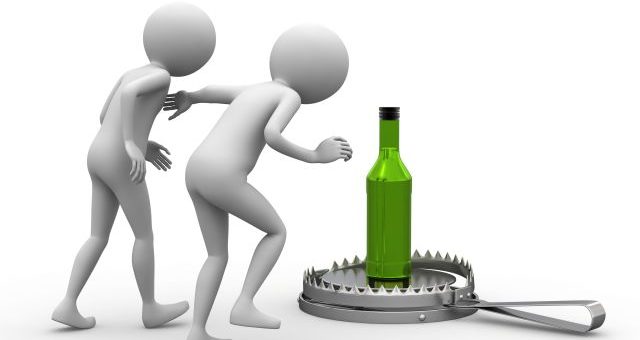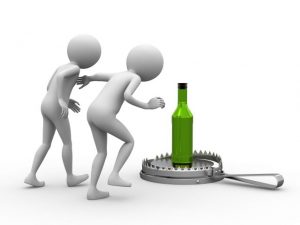
The Alcohol Trap is waiting for you
Alcohol is a Trap – Are you Drinking Too Much Alcohol?
I remember once I met an old man who was a wine maker. He explained to me that wine making was a very traditional pastime, where the cellar masters skills were handed down the generations such that a famous wine label would be assured continuity, both in terms of quality and longevity. He went on to explain that the methods he used in the production of wine were in fact carefully guarded secrets belonging to his particular family, and were the key to success in the family business. The family business was making and cellaring fine wine.
I remember that at the time, I savored wine as a luxury and a bit of a treat. So the opportunity to share some time with this gentleman was a real learning experience for me. And it was at a time when I was very impressionable about the fine art of wine making, and drinking too much alcohol. Added to that was the overwhelming experience of being deep within the wine cellar of a magnificent stone chateau. We were surrounded by generations of priceless wines, ancient barrels of valuable vintages, and the heady aromas of oak and tannins. And the promise of drinking too much alcohol.
Is Wine Making a dream job?
This story was no doubt enhanced by a tasting (or two or three) of the local product, but at that stage I was completely enamored by the tradition of the story. I was drawn to the fine heritage of the products, the age of the wine, or was it just by the alcohol content. Consequently, I devoured every word the wine maker spoke. I fantasized that I could find employment in a job that I could enjoy as much as he did! Needless to say, a winemaker’s job involves an element of quality control over the production of the wine. To put it more bluntly, a wine maker often makes excuses for drinking too much alcohol every day. After all it was his job to check that the wine was okay.
Now I know what you are thinking – and this is not good. Sure the concept of drinking alcohol as part of your job (and actually being allowed to do so) may seem like a dream job. But remember, that is the alcohol trap working inside your subconscious mind, and this is not necessarily a healthy scenario.
No-one is Safe from the Alcohol Trap
Sadly, this story does not have a happy ending.

The old man had spent a lifetime creating a cellar full of vintage wines in the tradition of his family and forebears, which would ensure the ongoing lineage of the label for future generations. From a historical perspective, the collection of vintages and succession of labels would be invaluable, let alone the perceived value to a collector of vintage wines, who have been known to pay thousands for a complete set of bottles.
But alcohol is a poisonous, toxic and addictive drug, such that a lifetime of exposure can be devastating. The old man’s fate was sealed. His long exposure to drinking too much alcohol had got the better of him. His priority gradually changed from collecting and cellaring the fine wine, to consuming vital elements of the collection.
In other words he was drinking too much alcohol. The very stuff his family was famous for, and it was killing him. Advanced alcoholism had poisoned his liver, creating irreparable damage, and on Doctor’s orders, he was to cease drinking all alcohol immediately.
The Ultimate Irony
Despite his looming illness, the old man did not wish to stop drinking. His lifetime ambition was to create a cellar of the finest wines, but deep within his subconscious mind was also the ambition to taste as many of the old vintages as possible before his time was finished. This was the ultimate conundrum!
The desire to experience the every best fruits of his own and his family’s traditional labours was outweighed against medical advice to the contrary. I confess that I do not know how this story ended, other than to presume whatever the outcome; there cannot have been an easy solution to such a conflict between the medical certainty over the uncontrollable subconscious desire.
This set of unfortunate circumstances may seem like a cruel irony, but I am certain that it is an irony that has been played out many times before, and may even have parallels with someone you know.
In fact, it is simply another example of the alcohol trap being carefully laid out in front of us, and then it silently waits for us to become trapped.
The irony was brought about entirely by the problem of drinking too much alcohol, and is evidence enough of the fact that alcohol is not your friend.
Don’t postpone your life
As much as alcohol is the problem, we need to make sure that we don’t postpone our life, waiting for that perfect opportunity, or our ship to come in. Life is to be lived at full pace, and not to be postponed until another day. If drinking too much alcohol is causing you to live under the shackles of alcohol, then you need to consider a way to break free.
Life is too precious to wait, too valuable to miss out on those important events that become part of the fabric of our lives. Don’t let alcohol steal your time, your money, or your relationships.
Don’t put if off for another minute – act now and get rid of the shackles for good!

Leave a Reply